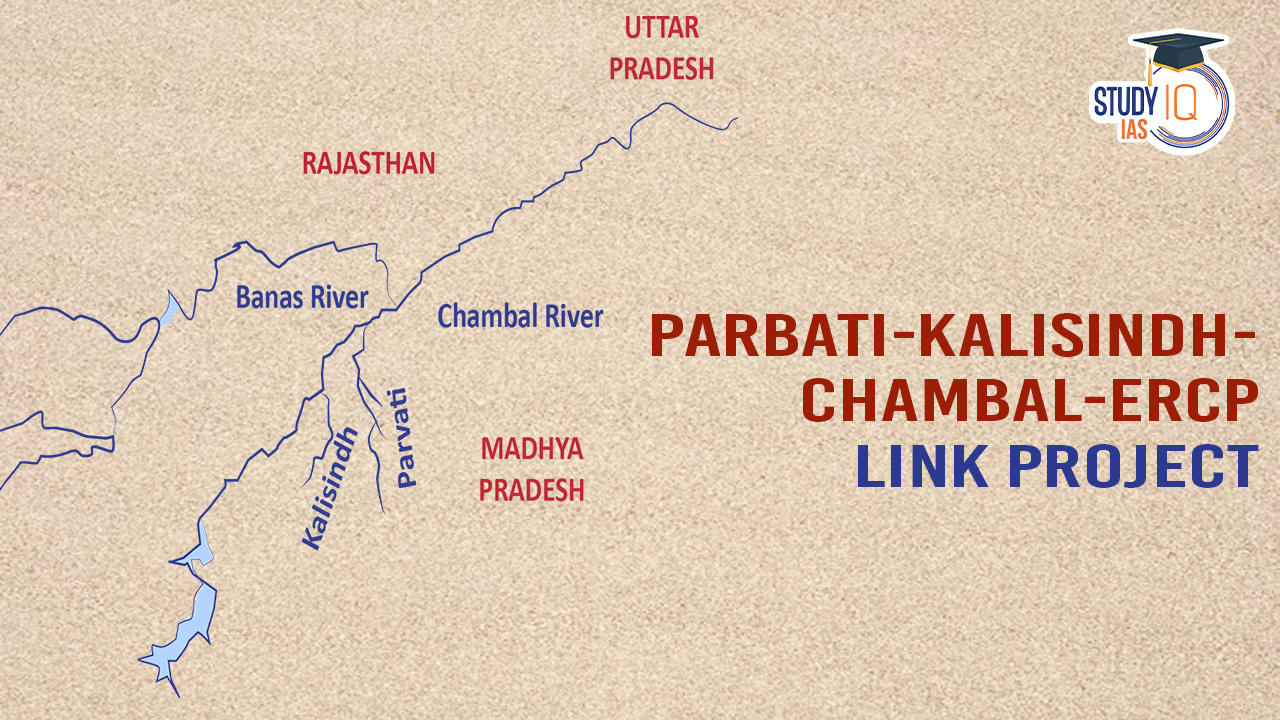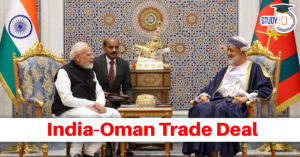Table of Contents
On January 28, 2024, a significant milestone was achieved in India’s water resource management sector with the signing of a Memorandum of Understanding (MoU) between the states of Rajasthan and Madhya Pradesh, along with the Government of India, for the implementation of the Parbati-Kalisindh-Chambal Eastern Rajasthan Canal Project (PKC-ERCP). This project aims to integrate the Parbati-Kalisindh-Chambal (PKC) link with the Eastern Rajasthan Canal Project (ERCP) and is a crucial part of India’s National Perspective Plan for the interlinking of rivers.
Background of the PKC-ERCP Link Project
The concept of interlinking rivers in India has been on the agenda since the late 20th century, driven by the need to address water scarcity and manage the country’s water resources more efficiently. The PKC link project was initially proposed in the National Perspective Plan (NPP) for interlinking rivers, and its Feasibility Report was circulated to concerned state governments in February 2004.
In 2019, the Rajasthan government proposed the ERCP to enhance regional water distribution further. The integration of the PKC link with the ERCP emerged as a logical step to optimize water resources, leading to regular discussions among the states and the Ministry of Jal Shakti.
Key Objectives of the PKC-ERCP Link Project
- Enhanced Water Supply: The project aims to provide a reliable supply of drinking and industrial water to 13 districts in eastern Rajasthan, significantly benefiting areas traditionally plagued by water scarcity.
- Irrigation Development: It is projected that the PKC-ERCP will irrigate approximately 5.6 lakh hectares of agricultural land across both states, supporting farmers and enhancing agricultural productivity.
- Sustainable Resource Management: The project focuses on optimizing the use of water resources in the Chambal basin, promoting sustainable water management practices essential for combating climate change effects.
Significance of the MoU
The MoU signed between the governments is not merely a bureaucratic exercise; it represents a significant shift toward cooperative federalism in India. Key figures involved in the signing include:
- Dr. Rajesh Kumar Rajora, Additional Chief Secretary, Water Resources Department, Government of Madhya Pradesh.
- Shri Abhay Kumar, Additional Chief Secretary, Water Resources Department, Government of Rajasthan.
- Smt. Debashree Mukherjee, Secretary, Department of Water Resources, Government of India.
Dignitaries present at the event included Shri Gajendra Singh Shekhawat, Union Minister of Jal Shakti, and the Chief Ministers of Madhya Pradesh and Rajasthan, highlighting the political significance of the project.
Expected Benefits of the PKC-ERCP Link Project
- Inter-State Cooperation: The successful negotiation of the MoU illustrates the potential for collaborative governance, showcasing how states can work together to manage shared resources.
- Economic Growth: By ensuring a consistent supply of water for industrial activities, the project is expected to stimulate economic growth in Rajasthan and Madhya Pradesh, attracting investments and generating employment opportunities.
- Agricultural Resilience: The enhanced irrigation capabilities are expected to improve the resilience of agriculture in the region, ensuring food security and supporting livelihoods in rural areas.
- Environmental Sustainability: The project emphasizes responsible water management, which is critical for ecological balance and biodiversity conservation in the Chambal basin.
Next Steps and Implementation
The next phase involves the preparation of the Detailed Project Report (DPR) for the PKC-ERCP. This report will outline the various components of the project, including:
- Scope of work
- Cost-sharing arrangements
- Water management strategies in the Chambal basin
Following the completion of the DPR, a Memorandum of Agreement (MoA) will be executed among the involved parties, setting the stage for the project’s implementation. The Union Minister of Jal Shakti has urged both states to expedite the DPR preparation to commence the project as soon as possible.
Challenges and Considerations
While the PKC-ERCP project holds immense potential, several challenges may arise, including:
- Funding and Investment: Securing sufficient funding for the project’s implementation will be crucial. Collaboration with various stakeholders, including private investors, may be necessary.
- Environmental Concerns: Environmental assessments will be required to ensure that the project does not adversely impact local ecosystems and biodiversity.
- Social Impact: The displacement of communities due to the project could pose challenges. It is essential to engage local populations and address their concerns effectively.
Conclusion
The Parbati-Kalisindh-Chambal Eastern Rajasthan Canal Project (PKC-ERCP) Link Project marks a significant development in India’s efforts to manage water resources sustainably. By enhancing cooperation between states and optimizing the use of water resources, the project promises to improve the lives of millions in Rajasthan and Madhya Pradesh. For UPSC aspirants, understanding the intricacies of this project is essential, as it exemplifies key themes in governance, environmental sustainability, and inter-state relations in India.


 Securities Markets Code Bill 2025: Towar...
Securities Markets Code Bill 2025: Towar...
 Weakly Interacting Massive Particles (WI...
Weakly Interacting Massive Particles (WI...
 India–Oman Trade Deal: CEPA Signed to ...
India–Oman Trade Deal: CEPA Signed to ...

























